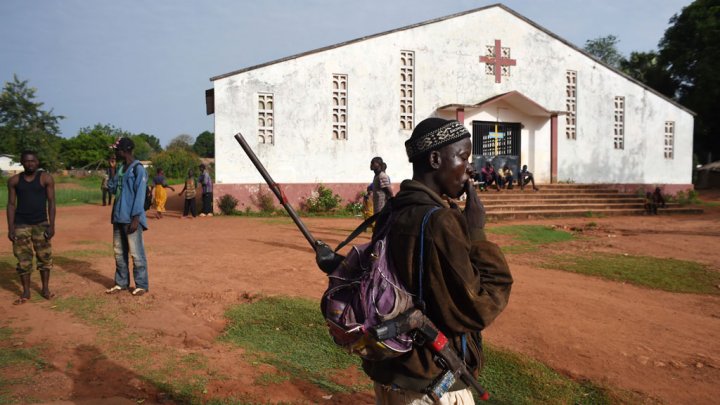In the West African country of Burkina Faso, the Grand Imam of Djibo Souaisou Cisse was found dead last month, just days after armed assailants abducted him from a public transport bus.
Imam Cisse was a powerful voice calling for peace and interfaith tolerance in Burkina Faso, a country where violent jihadists have been making gains in recent years. He brought together Christians and Muslims and was seen as a moderate religious figure who refused to leave his town despite repeated terrorist threats.
This is one of many recent attacks against religious leaders across conflict zones in West and Central Africa in the past few years.
Throughout West and Central Africa, both religiously and politically motivated armed groups have committed atrocities against civilians, escalating humanitarian crises and triggering catastrophic levels of displacement and food insecurity.
In many of these conflict zones, religious leaders have been facing particularly grave threats. In August 2020 alone, armed actors attacked religious leaders of both Muslim and Christian congregations in Nigeria, Burkina Faso, and Cameroon.
Why Do Insurgents Target Religious Leaders?
Religious leaders are often important voices calling for peace, nonviolence, and tolerance in some of Africa’s most vulnerable areas. Attacks on these pivotal figures threaten not only their rights as individuals to freedom of belief and expression but also broader efforts to promote peace and mutual trust across religious groups.
These attacks devastate religious communities, as worshippers lose their revered religious leaders and fear that they could be targeted next.
Armed assailants target religious leaders for several reasons. Some attackers seek to enforce their religious beliefs and ideology on others. Earlier this year, Boko Haram fighters abducted and beheaded Rev. Lawan Andimi, chair of a local branch of the Christian Association of Nigeria, reportedly because he would not renounce his faith.
Last month in northern Cameroon, Boko Haram insurgents attacked community leaders during a prayer service in a mosque in retaliation for those leaders having utilized the Quran to encourage villagers not to support jihadist groups.
In other instances, armed actors target religious leaders as symbols of authority that support a political or social status quo that the armed groups oppose. For example, analysts believe that jihadists targeted Imam Cisse because they perceived his efforts to promote interfaith tolerance as supportive of a secular Burkinabe state. In Nigeria, gunmen abducted the chief imam of Taraba Police Command in July after he had preached against increasing rates of crime and kidnapping.
Unacceptable Increase of Violent Attacks on Religious Leaders
The United States Commission on International Religious Freedom’s (USCRIF) 2020 Annual Report highlights trends of armed non-state actors targeting religious leaders as a result of their political advocacy in Cameroon, where armed Cameroonian separatists have attacked Catholic priests reportedly because the Catholic church called for nonviolence and an end to separatist-enforced school boycotts.
Leaders of faith communities have also fallen victim to the growing kidnap-for-ransom industry in many of these volatile regions. Armed actors and insurgents seeking to raise funds for their campaigns equate religious figures with wealth and believe abducting them will fetch a high ransom price. When ransom negotiations go wrong, the captors often execute these individuals.
The increase in violent attacks on religious leaders is unacceptable. The trend is particularly concerning since it is occurring alongside attacks on houses of worship and worshippers. Religious leaders play a vital role in promoting religious freedom and interfaith harmony in West and Central Africa.
Protect Leaders of Faith Communities
The US government can help by investing more to help protect religious institutions in these varied contexts. Policymakers should prioritize and expand efforts to enhance local security forces’ capacity to protect leaders of faith communities.
This should include increased funding for equipping and training authorities to prevent and respond to attacks against houses of worship as well as specifically to prevent and respond to attacks targeting religious leaders. Support to local courts and judicial systems will also deter future assailants and ensure that perpetrators are brought to justice.
Leaders of faith communities play an integral role in promoting religious freedom and interfaith harmony in West and Central Africa. They must be protected in carrying out this critical work in such a fragile region of the world.


